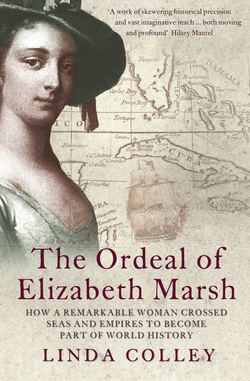Читать книгу The Ordeal of Elizabeth Marsh: How a Remarkable Woman Crossed Seas and Empires to Become Part of World History - Linda Colley - Страница 12
History and Her Story
ОглавлениеSo this is a book that ranges between biography, family history, British and imperial history, and global histories in the plural. Because of the tendencies of our own times, historians have become increasingly concerned to attempt seeing the world as a whole. This has encouraged an understandable curiosity about very large-scale phenomena: the influence of shifting weather systems on world history, ecological change over time, patterns of forced and voluntary migration, the movement of capital, or commodities, or disease over continents, the transmission of ideas and print, the workings of vast overland and oceanic networks of trade, the impact of conflicting imperial systems, and so on.10 These, and other such grand transcontinental forces, were and are massively important. Yet they have never just been simply and inhumanly there. They have impacted on people, who have understood them (or not), and adapted to them (or not), but who have invariably interpreted them in very many different ways. Writings on world and global history (to which I stand enormously indebted) sometimes seem as aggressively impersonal as globalization can itself.
In this book, by contrast, I am concerned to explore how the lives of a group of individuals, and especially the existence of one particular unsophisticated but not unperceptive woman, were informed and tormented by changes that were viewed at the time as transnational, and transcontinental, and even as pan-global, to an unprecedented degree. I seek to tack between the individual and world histories ‘in such a way as to bring them into simultaneous view’.11 Writing some fifty years ago, the American sociologist C. Wright Mills suggested that at no other era had ‘so many men been so totally exposed at so fast a pace to such earthquakes of change’. The ‘earthquakes’ happening in the 1950s were due, he thought, to the collapse of old colonial empires and to the emergence of new, less blatant forms of imperialism, to the horrific implications of atomic warfare, to politicians’ surging capacity to deploy power over individual lives, to runaway modernization, and to inordinate pressure on marriage and the family. It was vital, Mills suggested, to try to understand the relationship between these ‘most impersonal and remote transformations’ and ‘the most intimate features of the human self’. Not least because those living through such earthquakes were often unable themselves to see this relationship clearly and make sense of it:
Seldom aware of the intricate connection between the patterns of their own lives and the course of world history, ordinary men [sic] do not usually know what the connection means for the kinds of men they are becoming and for the kinds of history-making in which they might take part. They do not possess the quality of mind essential to grasp the interplay of man and society, of biography and history, of self and world.
Instead, he suggested, men and women whose fate it was to ‘cope with the larger worlds with which they are so suddenly confronted’ often simply felt ‘possessed by a sense of trap’.12
As far as Elizabeth Marsh is concerned, Mills’ characterization of the responses of those who live through ‘earthquakes’ of global change is both right and wrong. As will become clear, at times, and for good reason, she was indeed ‘possessed by a sense of trap’. But, like other members of her family, she tried to make sense of the changes transcending seas and continents that she and they were so markedly living through and acting out. The extent and quality of Elizabeth Marsh’s global earthquake in the mid-eighteenth century was substantially different from that perceived by Mills in the 1950s, though the flux of empire, enhanced state power, runaway military violence, modernization, and strains on the family and marriage were part of her experience too. Elizabeth Marsh’s earthquake was also very different from our own at the start of the twenty-first century. But the nature of her ordeal, her precocious and concentrated exposure to so many forces of transcontinental change, and her sense in the face of these ‘impersonal and remote transformations’ both of shock and wonder, entrapment and new opportunities, remain eloquent and recognizable. This is her story.
